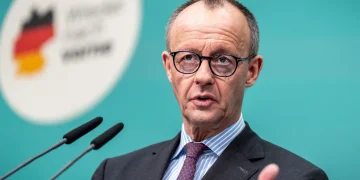The 50-day deadline for the penance ordained by Prime Minister Narendra Damodardass Modi November 8 has finally come to an end today. But not the penance.
People have passed the ‘Agni Pariksha’ by way of silently suffering untold misery during this 50-day period. They have forgotten festivals.
Poor people, who had painstakingly saved money over years to see their children married off had to shelve their plans. Businessmen, big and small, have been put to severe difficulties. Small-time traders, roadside kiosk owners, push cart vendors have all lost their business. Many have lost jobs.
Reports of people committing suicides or meeting shock deaths have been galore. The situation has been worse than a financial emergency. There has not been a murmur of protests from public. India is known for its history of tolerance, its people are law-abiding. But what have they finally got?
The government has failed to keep its part of the promise. It was all bluster typical of Prime Minister Modi.
The Prime Minister had declared November 8 that he would accept whatever punishment people will give him if he fails to end their sufferings after the December 30 deadline set by him. What now? Will he resign from his post owing moral responsibility?
There is no relief in sight yet, nor will the situation improve in the short to medium term unless the government has an Aladdin’s lamp. There are people still queueing up before ATM machines. Many are seen crowding banks.
More than half the ATMs are still dry or dysfunctional. Banks have not been able to make their ATMs up and running even though the Rs2,000–2,500 withdrawal limit is still in force.
Going by the looks of it, it is unlikely the New Year will usher in anything good for people on the cash front. Farmers, small-time traders, roadside kiosk owners, fisher folk, et al continue to wonder at the prospects awaiting them post December 30.
Will the Centre do some magic, is the question uppermost in everybody’s mind. The government has experimented too many things in the last few days. Everyday a new law or notification has come out. But all this has come to naught.
But this is the time to analyse what the government can do or will do hence. We should read the writing on the wall. There will be no magic wand act from the government.
The fact that the government has been crying hoarse to switch to a digital mode of payment and to shun cash-based economy makes it clear that it has no intention to replace the value of the entire 500- and 1,000-rupee notes that people deposited back in the banks.
After the November 8 surgical strike, the total amount of invalid notes that have found their way to the banks added up to around Rs15 lakh crore (84 per cent of the total money in circulation). The government has no intention to pump in an equal size of currencies into the system.
That is why it has been urging people to use more and more point of sale (PoS) devices to carry out their regular transactions. It has instituted prizes for this purpose to encourage people to go digital. But can this succeed considering that 70 per cent of India still lives in villages?
The project to be successful calls for basic infrastructure such as full-time electricity, sound penetration of PCs and internet, availability of mobile phones and enough PoS devices. Many villages in the country today do not have all-weather roads.
Many are even not self-sufficient when it comes to use of simple debit cards, let alone cheques. And the lack of awareness caps it all. What is the government doing to address these ills? That will prove to be the real acid test.






































